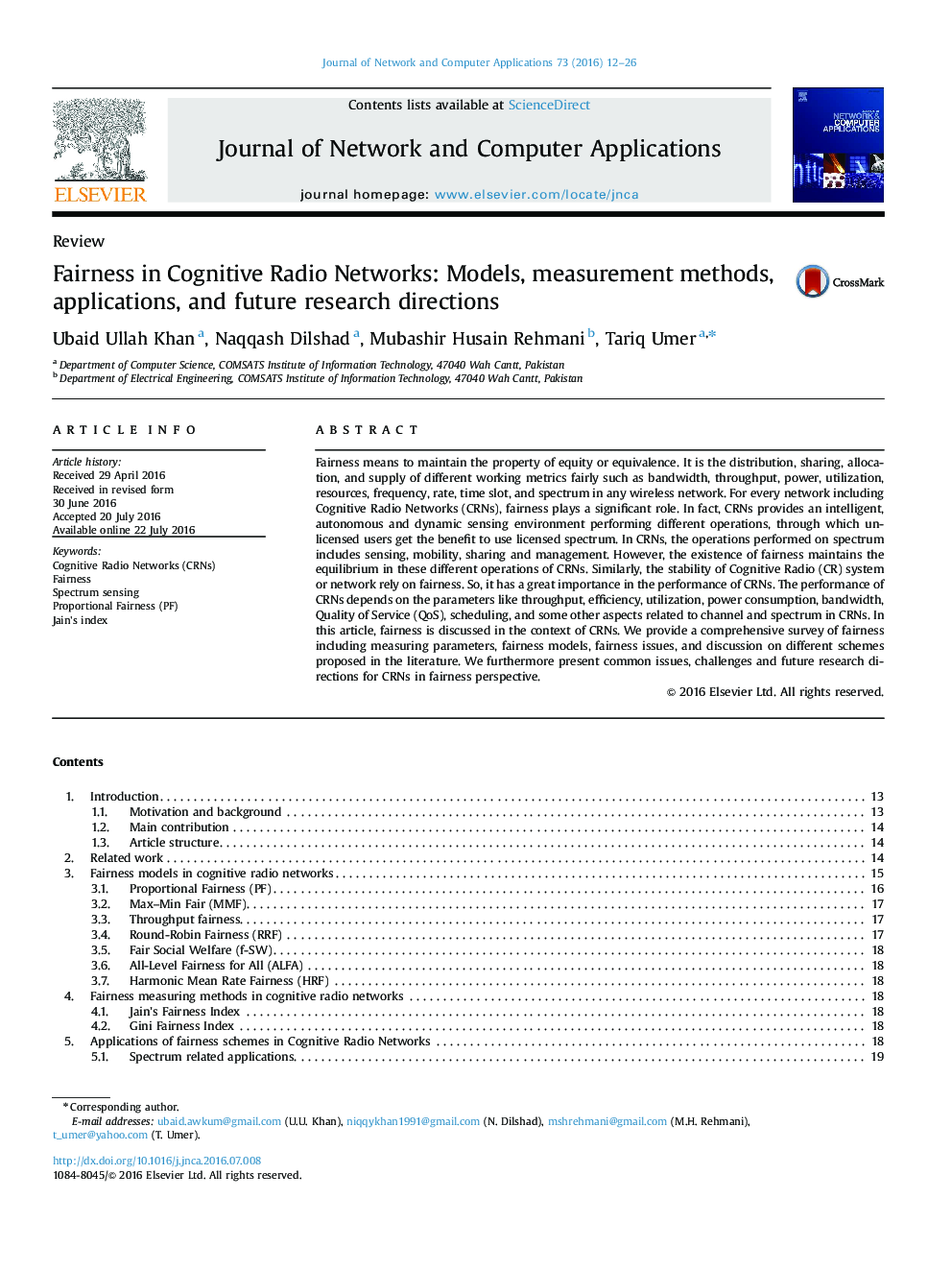| Article ID | Journal | Published Year | Pages | File Type |
|---|---|---|---|---|
| 494523 | Journal of Network and Computer Applications | 2016 | 15 Pages |
Fairness means to maintain the property of equity or equivalence. It is the distribution, sharing, allocation, and supply of different working metrics fairly such as bandwidth, throughput, power, utilization, resources, frequency, rate, time slot, and spectrum in any wireless network. For every network including Cognitive Radio Networks (CRNs), fairness plays a significant role. In fact, CRNs provides an intelligent, autonomous and dynamic sensing environment performing different operations, through which unlicensed users get the benefit to use licensed spectrum. In CRNs, the operations performed on spectrum includes sensing, mobility, sharing and management. However, the existence of fairness maintains the equilibrium in these different operations of CRNs. Similarly, the stability of Cognitive Radio (CR) system or network rely on fairness. So, it has a great importance in the performance of CRNs. The performance of CRNs depends on the parameters like throughput, efficiency, utilization, power consumption, bandwidth, Quality of Service (QoS), scheduling, and some other aspects related to channel and spectrum in CRNs. In this article, fairness is discussed in the context of CRNs. We provide a comprehensive survey of fairness including measuring parameters, fairness models, fairness issues, and discussion on different schemes proposed in the literature. We furthermore present common issues, challenges and future research directions for CRNs in fairness perspective.
